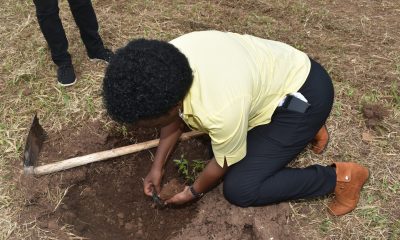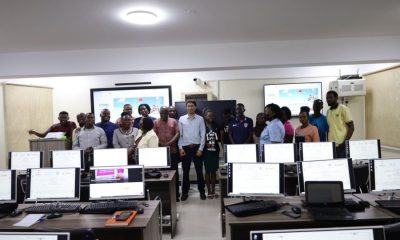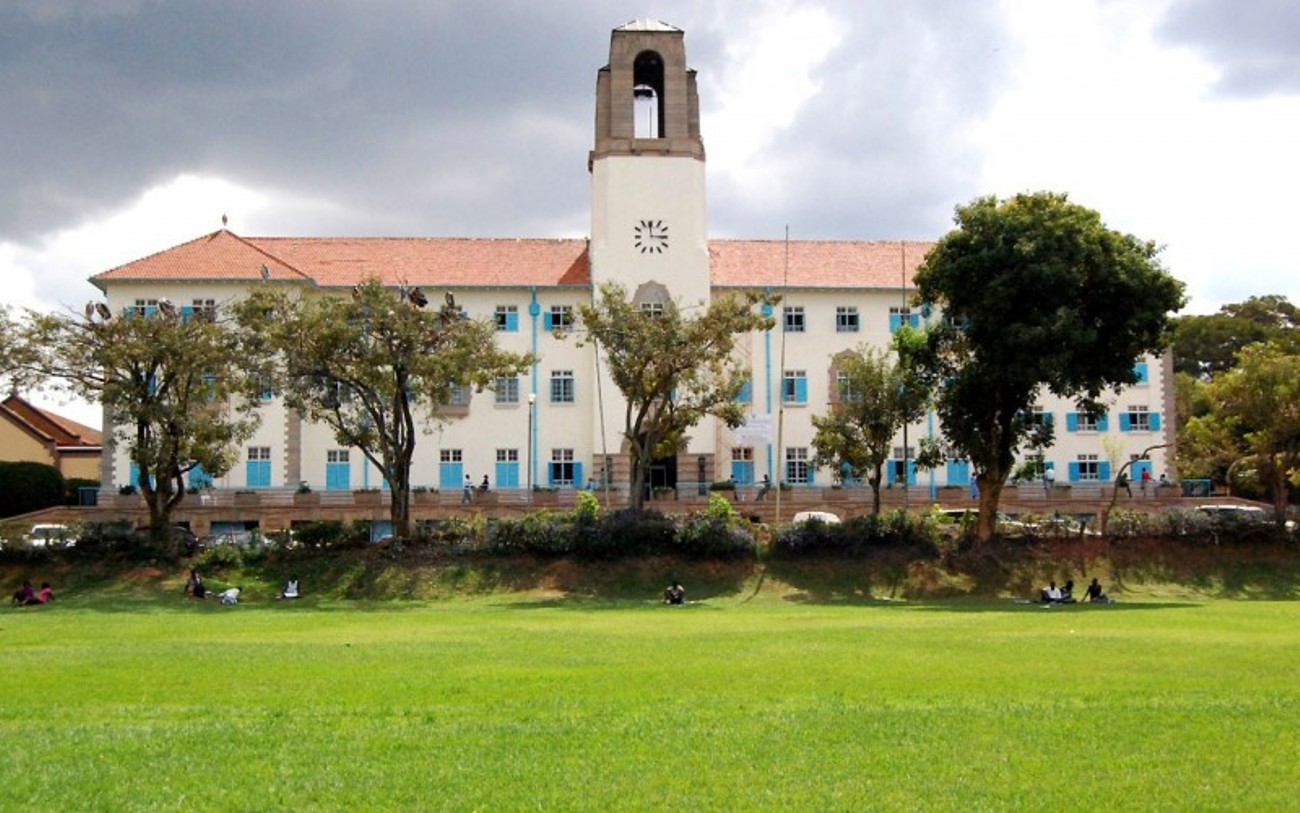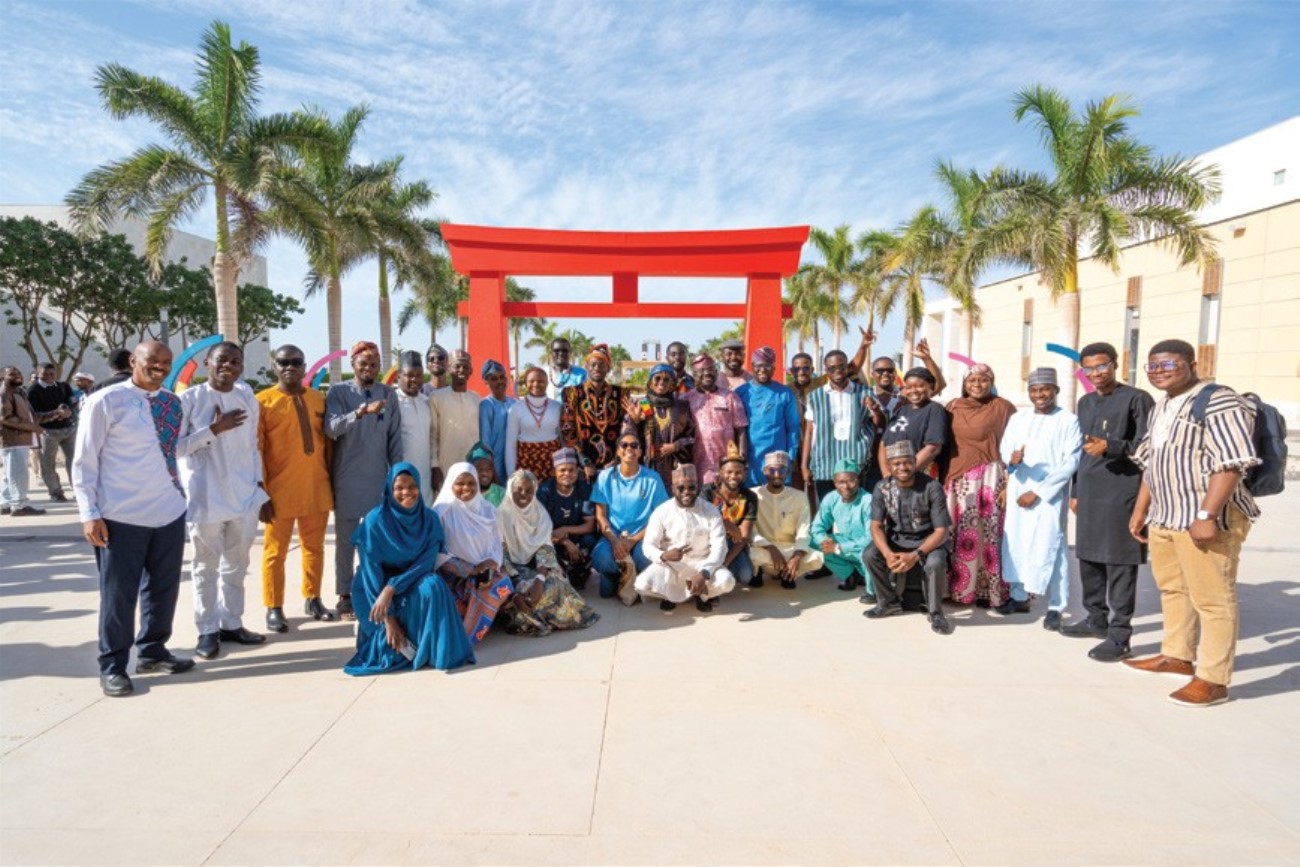The Chairperson, Makerere University Council, Mrs. Lorna Magara on Friday, 1st November 2019 witnessed the swearing in of the Representative of the National Union of Educational Institutions (NUEI) to Council and the Students Disciplinary Committee. Mr. Jackson Byamukama, Library Assistant, Makerere University Library will henceforth represent the support staff under their umbrella body NUEI on the University Council.
On the other hand, the Students Disciplinary Committee has been appointed by the University Council with members from the following constituencies:
(i) A member of the public at the level of a Judge;
(ii) Two representatives of Academic Staff;
(iii) A senior member of Administrative Staff; and,
(iv) A member from the public.
The following have therefore been appointed as members of the Students Disciplinary Committee;
(i) Mr. Precious Ngabirano (Chairperson)
(ii) Dr. Sylvia Atonia Nannyonga-Tamusuza (Representative of Academic Staff)
(iii) Dr. Akileng Godfrey (Representative of Academic Staff)
(iv) Sheik Muhammad Ssentongo (Representative of Administrative Staff)
(v) Hon. Beatrice Kiraso (Representative of the public)

The Students Disciplinary Committee will be guided by the following Terms of Reference:
(i) To handle disciplinary cases directly brought to it;
(ii) To handle cases referred to it by the Hall Disciplinary Committee;
(iii) To handle appeals from parties dissatisfied with the ruling by the Hall Disciplinary Committee; and
(iv) Any other functions assigned by Council.
Addressing the audience, the Acting University Secretary, Mr. Yusuf Kiranda said that the Committee would help to handle related cases in light of the recent unrests at the Main Campus. He thanked the Chairperson and Members of Council, Members of Management and all staff for the engagements with various stakeholders both within and outside the university that helped to restore calm.
“I therefore congratulate Mr. Jackson Byamukama upon being elected to represent NUEI on Council and thank Members of the University Students Disciplinary Committee for honouring the clarion call to serve the University in these responsibilities” added Mr. Kiranda.

The appointed members present were administered the oath by the Director Legal Affairs and Commissioner of Oaths, Mr. Henry Mwebe. He was assisted by Legal Officer-Ms. Naome Kiconco and Assistant Legal Officer-Mr. Leon Amutuhaire. Present for the swearing in ceremony were; Mr. Jackson Byamukama, Dr. Sylvia Atonia Nannyonga-Tamusuza and Dr. Akileng Godfrey, while other members were absent with apology.
Representing the Vice Chancellor Prof. Barnabas Nawangwe at the ceremony, the Deputy Vice Chancellor (Academic Affairs), Dr. Umar Kakumba expressed gratitude on behalf of the University Management at finally having a fully constituted University Council and Students Disciplinary Committee in place. He added that these developments would go a long way in delivering the best of services to both Staff and Students.
“In particular, I congratulate the members of Academic Staff who have been recommended to serve on the Students Disciplinary Committee because this is recognition of additional leadership abilities beyond your teaching obligations” added Dr. Kakumba.

In her remarks, the Chairperson of Council, Mrs. Lorna Magara congratulated Mr. Byamukama as well as the newly constituted Students Disciplinary Committee upon their respective appointments. She noted that the place of leadership in society is a call to service, “and the person who excels in leadership is the person who serves; one who goes beyond the call of duty.”
Mrs. Magara added that the call to service is double-edged; with a rough side that tests and another that makes the leader a better person. “Leadership gives you the opportunity to grow personally as your serve” she explained.
Addressing the newly sworn in officials directly, the Chairperson urged Mr. Byamukama to familiarize himself with the Universities and Other Tertiary Institutions Act (UOITA) as well as the Makerere University Charter upon which Council business is conducted. In the same spirit, she urged Members of the Students Disciplinary Committee to get well acquainted with the Makerere University Charter as well as the University Students Rules and Regulations.

She noted that Members chosen to serve on the Students Disciplinary Committee are in an enviable position because they weren’t haphazardly chosen, but rather after careful and deliberate consideration. Mrs. Magara therefore urged them to reflect upon this as they serve on the Committee.
“Be fair but firm in handling cases brought before you,” advised Mrs. Magara, before urging the Committee to avoid delays in handling cases. “Sometimes delays in handling cases mean injustice to those affected. Handle matters expeditiously but be cautious. I thank you for accepting to serve your University and wish you the best during your term of office. God bless you” she concluded.
The swearing in ceremony was moderated by the Acting Manager, Communication and International Relations, Dr. Muhammad Kiggundu Musoke who thanked the Members of Management present and Representatives of Staff Associations for sparing time to attend the event. He equally thanked the Chairperson and Members of Council as well as University Management and colleagues for working hard to ensure that normalcy is restored at the campus.
Article by Public Relations Office.

 General3 days ago
General3 days ago
 Health2 weeks ago
Health2 weeks ago
 Innovation3 days ago
Innovation3 days ago
 Agriculture & Environment3 days ago
Agriculture & Environment3 days ago
 Computing & IS4 days ago
Computing & IS4 days ago


